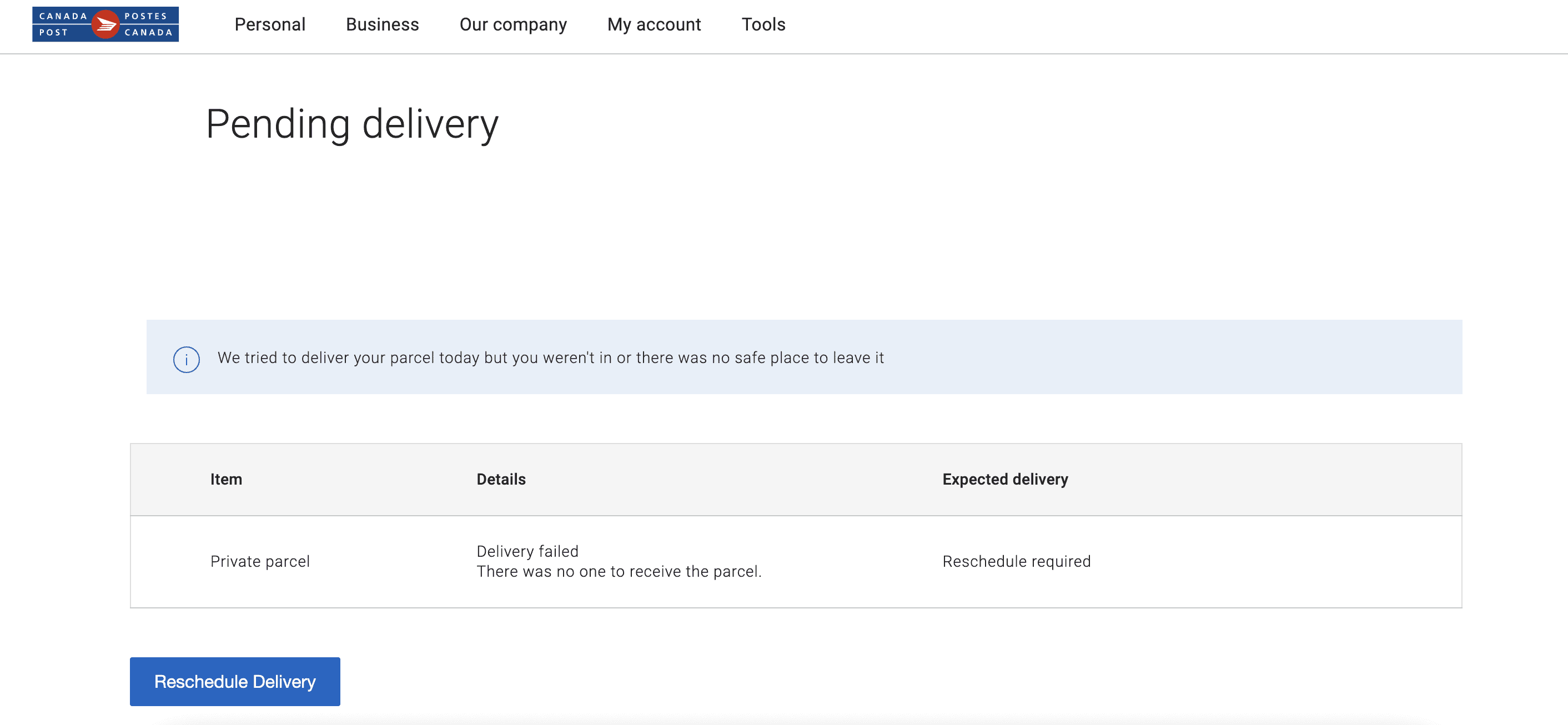Convincing and sophisticated Canada Post scam making the rounds in Ontario
Published May 15, 2023 at 4:13 pm

While phishing scams designed to trick people into giving fraudsters their personal and financial information are common, one particularly sophisticated scam is raising alarms by luring people to a website that’s identical to the official Canada Post site.
Some local residents have reported receiving a text from a number with a 902 area code that purports to be associated with Canada Post.
“Canada Post: Your package has been held, and the courier did not receive a signature,” the text reads before prompting the recipient to click on a link to “plan your delivery.”
The link leads to a realistic website that looks exactly like the official Canada Post site.

The fraudulent website prompts visitors to choose a new delivery date for either $1 or $1.25, while also asking the visitor to fill out several fields asking for their name, date of birth, address and, eventually, payment information.
In an email to insauga.com, a Canada Post representative said the postal service does not send unsolicited text messages to people awaiting deliveries.
“When Canada Post makes a delivery attempt, we leave a delivery notice card at your door or in your mailbox. We do not contact our customers by email, text or phone, unless it has been requested,” the spokesperson said.
“Canada Post takes these matters very seriously. Unfortunately, malicious phishing emails, texts and phone calls circulate from time to time.”
Canada Post is asking anyone who receives suspicious communications from a person or organization claiming to be from the postal service to contact the Canadian Anti-Fraud Centre at 1-888-495-8501.
People can also reach out to Canada Post directly to verify that the information they’re receiving is legitimate and report any texts, emails or calls they believe to be fraudulent.
As for how to avoid phishing scams, the Ontario government says to be wary of any text or email from an unfamiliar sender that asks you to click a link or open an attachment.
The government’s website also says to look closely at the URL.
“Look for the secure symbol. Legitimate websites that ask you to enter confidential information are generally encrypted to protect your details. You can identify secure websites by either ‘https:’ rather than ‘http:’ at the start of the internet address [or] a closed padlock or unbroken key icon at the bottom right corner of your browser window.”
The Province advises residents to avoid sending sensitive information over email or text and to never provide any personal or financial information to callers claiming to be from their bank or other institution. Anyone receiving a call should hang up and call their bank or financial institution to confirm the request was valid.
INsauga's Editorial Standards and Policies


